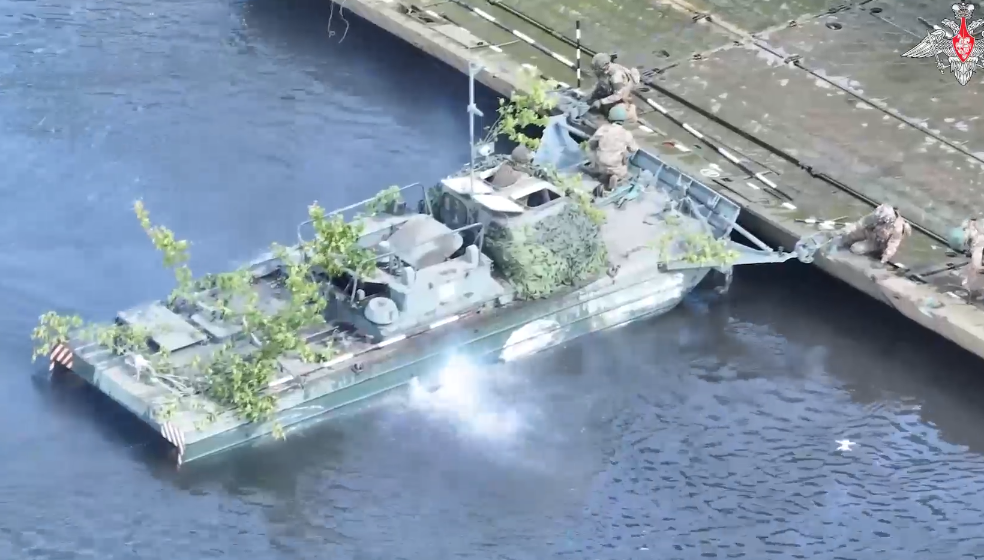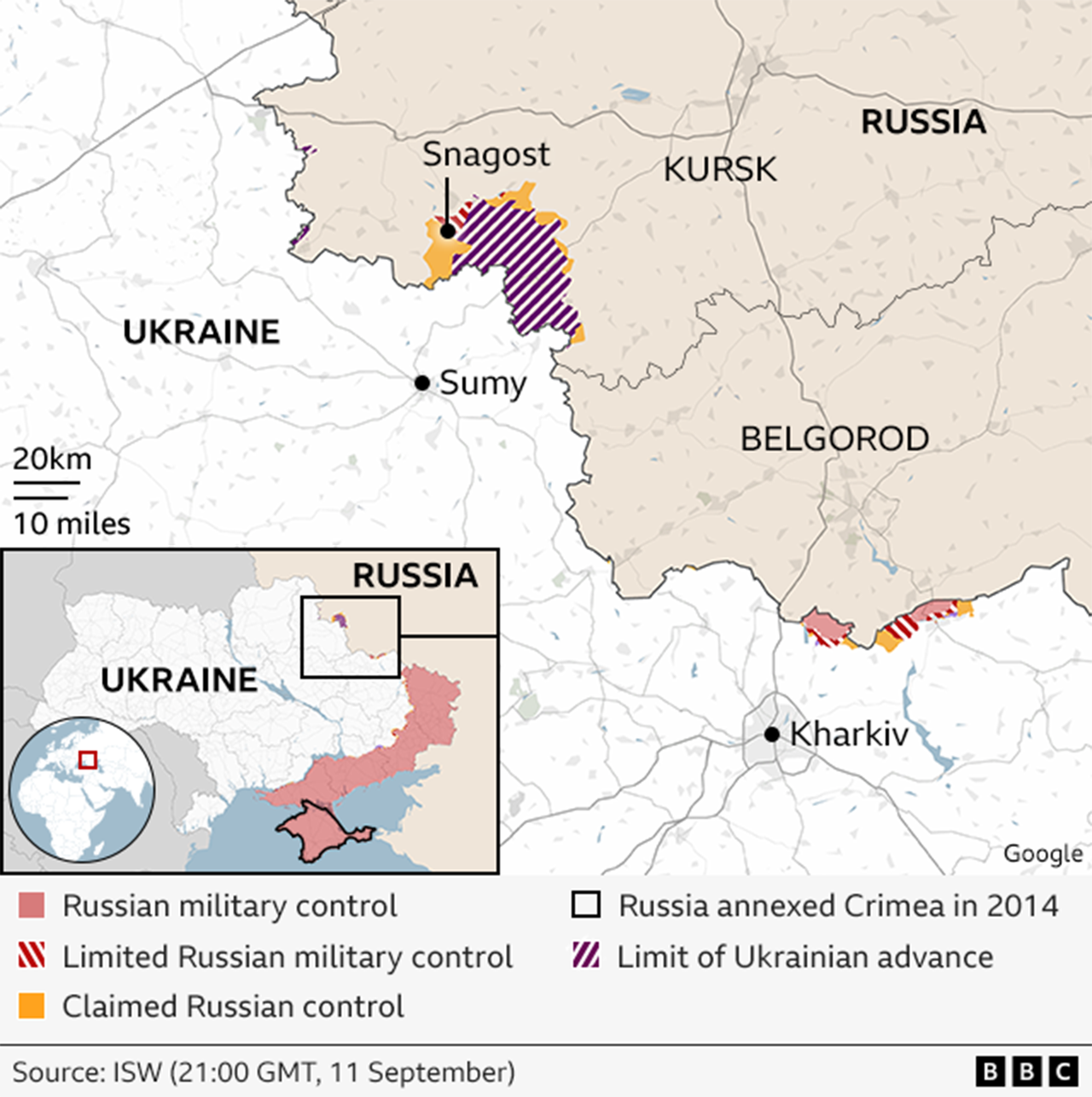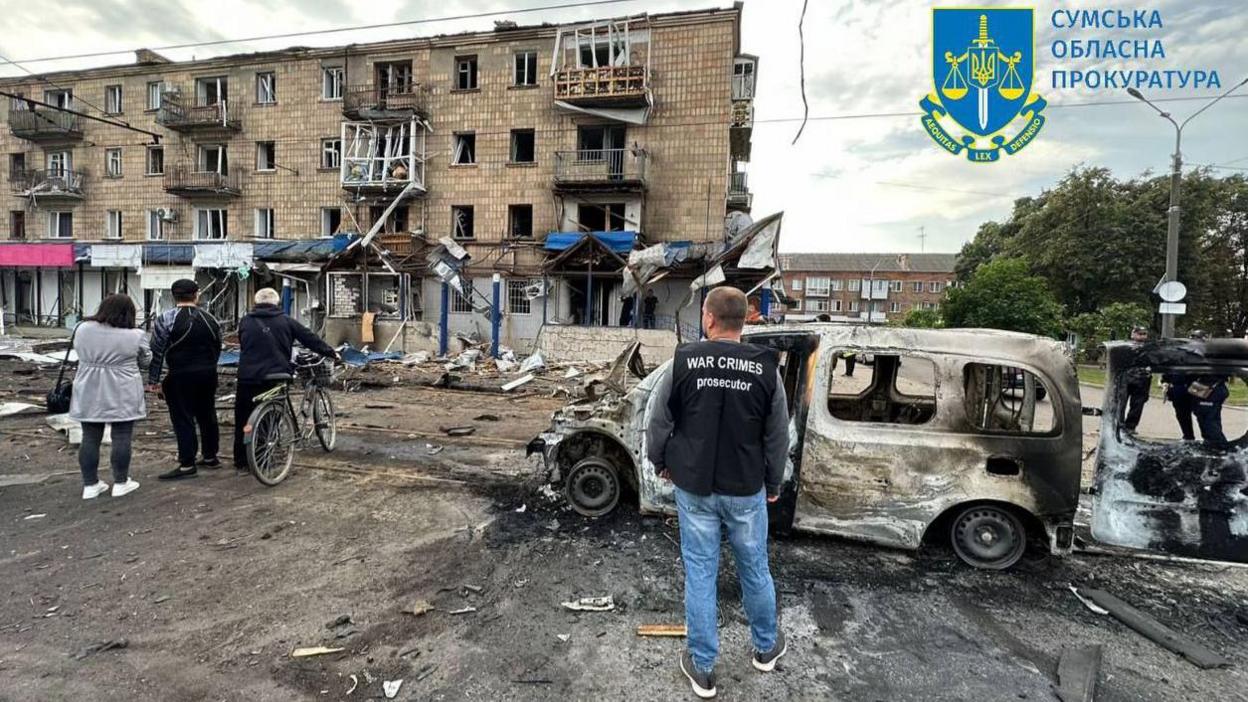Russia claims start of fightback in Kursk region

Russia's Units of the North had to cross rivers as part of the counteroffensive
- Published
Russia's defence ministry says its forces have recaptured 10 settlements seized by Ukrainian forces in a surprise incursion in Russia's Kursk border region last month.
Ukrainian President Volodymyr Zelensky confirmed that Russia had begun "counter-offensive actions, which is going in line with our Ukrainian plan".
Russia said its "Units of the North" forces had reclaimed the settlements over two days in the area around Snagost, on the western flank of the area occupied by Ukraine in its campaign launched on 6 August.
The first indication of a counteroffensive had come from Chechen special forces commander, Maj Gen Apti Alaudinov, who said six Ukrainian brigades had suffered heavy casualties.
A Ukrainian officer fighting in the Kursk region told the BBC that the Russian counteroffensive had begun some distance to the west of Sudzha.
"The fighting is very tough and the situation is not in our favour as of now," the officer said on condition of anonymity.
Ukraine's offensive was launched with the apparent aim of distracting Russia from its push into eastern Ukraine. It now claims up to 1,300 sq km (500 sq miles) of Russian territory.
However, Russian forces continued to seize villages in eastern Ukraine and are closing in on the strategic town of Pokrovsk.
Analysts from the US-based Institute for the Study of War said the size, scale and potential prospects of the Russian counterattacks were unclear and it was premature to draw any conclusions.
One social media account linked to a Ukrainian brigade said Russian forces had unexpectedly launched their attack near Snagost and that the Ukrainians were fighting back.

In the weeks since Ukrainian forces entered Kursk region, they have destroyed three bridges across the River Seym to keep the Russians at bay, and several pontoon bridges erected afterwards.
However, reports suggest the Russians were able to cross both the Seym and other smaller rivers as part of their counteroffensive.
Russian military expert Anatoly Matviychuk told the Moskovsky Komsomolets newspaper that more than 100 sq km of territory had been recaptured and "the enemy's reserves, reinforcements, and logistical supplies can no longer reach Kursk region".
Russia's military was caught by surprise by the scale and intensity of the Ukraine incursion into Kursk region early last month.
Although Moscow was stunned by the ease with which Ukrainian forces seized towns and villages including Sudzha, President Vladimir Putin said almost a month afterwards that they had failed.
Inside Pokrovsk - the vital Ukrainian town in Russia's sights
- Published9 September 2024
Meeting the Ukrainian recruits preparing for new battle
- Published2 September 2024
Ukrainian forces had tried to make Russia nervous - "to scurry, to send troops from one area to another and to stop our offensive in key areas, above all in Donbas" - he said.
Not only had it not worked, Putin argued, but Ukraine's offensive had merely helped Moscow's "primary objective", which he identified as capturing the Donbas - Ukraine's industrial regions of Donetsk and Luhansk.

Russia attacked the northern Ukrainian town of Konotop on Thursday, wounding 14 people
Russian forces are now only a few kilometres outside Pokrovsk and its adjoining town Myrnohrad and fierce fighting is reported on the approaches to the Pokrovsk.
An overpass between the two towns was destroyed overnight into Thursday and the Donetsk regional head said a water supply line to Pokrovsk had also been cut, although he said the town had access to several wells.
Separately, on Wednesday the International Committee of the Red Cross (ICRC) said three of its staff had been killed in eastern Ukraine.
They had been delivering aid in the Donetsk region.
Zelensky called the attack a Russian war crime but the ICRC did not identify who was behind it, adding that it was "unconscionable" that "shelling would hit an aid distribution site".
Meanwhile, a Russian drone attack left 14 people wounded in the northern Ukrainian town of Konotop, a key hub used by Kyiv for preparing its Kursk campaign.
Prosecutors in the Sumy border region posted photographs showing damaged apartment blocks in the town. Power supplies to Konotop were down because of the strike and officials said energy infrastructure had been significantly damaged.